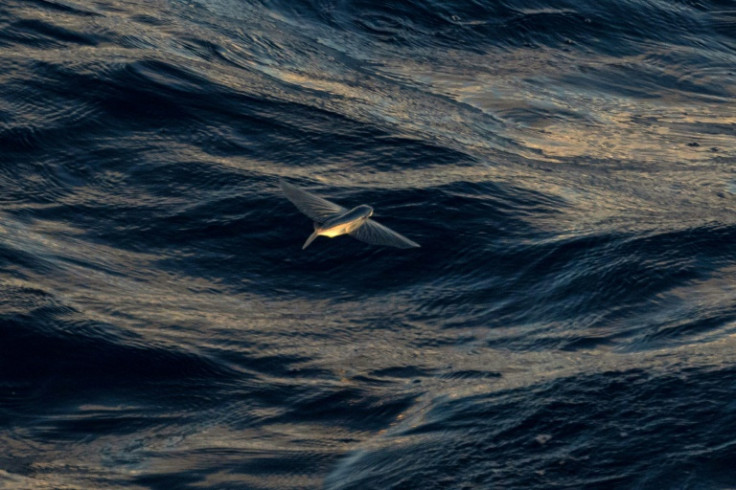Underwater Mining Of High Seas Inches Closer, Worrying Environmentalists

Governments will soon likely be able to apply for deep sea mining contracts in international waters, a plunge into the unknown that is worrying conservationists as calls for a moratorium on such digging grow.
States have for ten years been negotiating a mining code to set rules for the possible exploitation of nickel, cobalt and copper in deep seabed areas that fall outside of national jurisdictions.
But agreement has so far been elusive, and on Sunday a clause is set to expire that allows governments to apply for contracts while negotiations continue.
"I think it's a very real possibility that we see an application submitted this year," Emma Wilson of the Deep Sea Conservation Coalition told AFP.
"So it's crucial for states to be bold and implement the necessary measures to protect our ocean," she said, adding that the International Seabed Authority (ISA) is entering "the most critical decision-making period in the history of its existence."
The ISA was established under the 1982 UN Convention on the Law of the Sea. It is responsible for protecting the seabed in the high seas as well as regulating activities related to coveted minerals.
Presently, the Jamaica-based body only grants exploration permits for these areas, which the UN convention classifies as "the common heritage of mankind."
In the summer of 2021, the small Pacific island state of Nauru threw a spanner into the works of the decade-long negotiations for the mining code by triggering a clause demanding that agreement be reached within two years.
With that timeframe now up, if Nauru were to apply for a contract for Naura Ocean Resources (Nori), a subsidiary of Canadian firm The Metals Company, then ISA would have to consider the request -- but may not necessarily give the green light.
The Nauru authorities have given assurances that they will not act immediately, but other companies sponsoring states' underwater mining ventures could take advantage of the opportunity, experts say.
"I'm not too concerned," Pradeep Singh, a laws of the sea expert at the Research Institute for Sustainability in Potsdam, Germany, told AFP.
"I think it would be a mistake to submit an application anytime soon, seeing that states are still negotiating and working towards completing the regulation.
"The indication is quite clear that states are very reluctant and hesitant to allow mining to commence without regulations," he added.
In March, the 36 member states of the ISA Council, the decision-making body on contracts, noted that commercial exploitation "should not be carried out" until the mining code was in place.
But they were unable to agree on the process for examining a possible application, or on the precise interpretation of the clause triggered by Nauru.
NGOs fearing that companies may exploit the legal vacuum hope that the Council will make a much clearer decision when it meets in Kingston from July 10 to 21.
Meanwhile, Chile, France, Palau and Vanuatu have chosen to take the debate to the political level.
At their request, and for the first time, the assembly of ISA's 167 member states will discuss a "precautionary pause" in mining when it meets between July 24 and 28.
"The aim is to put the issue on the table, to have a debate that has never taken place before", French Secretary of State for the Sea Herve Berville told AFP, hoping that this will "encourage other countries to follow suit."
The coalition supporting the moratorium, although gaining ground, currently comprises just under 20 countries.
"The aim is that by 2024, it will be clear to a majority of countries that a precautionary pause in the exploitation of the seabed is the right thing to do if we are to meet the challenges of climate change and biodiversity," Berville added.
He insists it's a "question of credibility" at a time when the world has just adopted the first treaty to protect the high seas and has set itself the target of preserving 30 percent of land and oceans by 2030.
NGOs and scientists say that deep sea mining could destroy habitats and species that may still be unknown but are potentially vital to ecosystems.
They also say it risks disrupting the ocean's capacity to absorb carbon dioxide emitted by human activities, and that its noise interferes with the communication of species such as whales.
"We have the opportunity to anticipate this new extractive industry and stop it before it can do any damage to our planet," said Louisa Casson of Greenpeace.
© Copyright AFP 2024. All rights reserved.





















